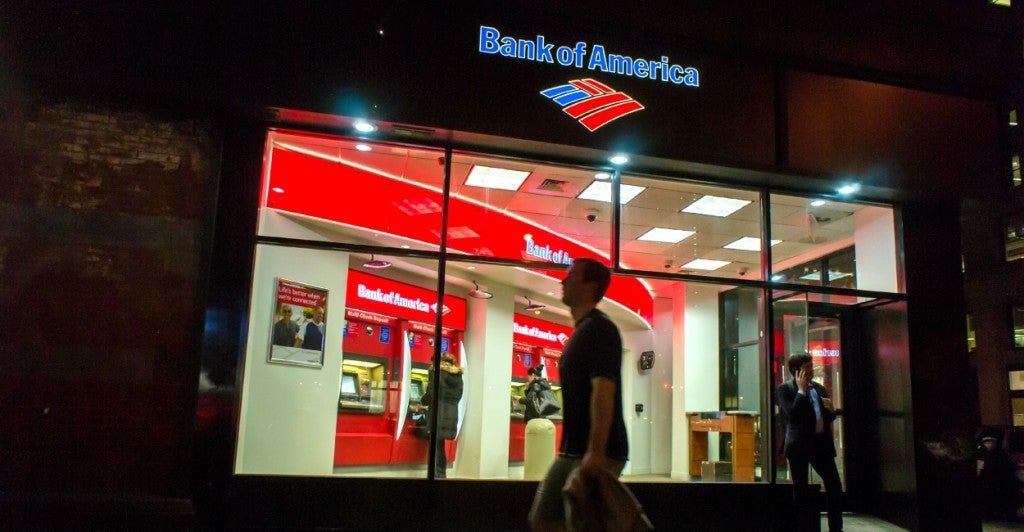Bank of America has announced that it will reduce 200 trading- and investment-related jobs.
Even with the cuts, their bank compliance managers (those who make sure the bank is following government regulations) should feel pretty safe. Bank regulations don’t look as though they’ll be reduced anytime soon.
For banks, efforts to comply with specific regulations often eat away valuable resources. While the intent of the regulation may be noble—striving for equal opportunity and consumer protection—the practice of the regulation has little impact.
For instance, banks face so much advertising regulation that they should probably start hiring compliance officers to do their marketing. Banks are even micro-managed by regulators on the images they can use for marketing purposes: individual ads are scrutinized to ensure that they do not discourage particular groups of potential customers.
Another example of extensive regulation is if a bank wants to advertise a credit product, such as a credit card or a mortgage. The Truth in Lending Act gave birth to a list of advertising-specific requirements that exceeds well over 4,500 words. The act mandates things such as where and how an advertisement can state the term “introductory” and how the term “down payment” must be accompanied by several other disclosures.
While banks are busy playing catch-up on the volume of enacted regulation, efforts might be better spent avoiding some regulatory requirements altogether. For example, banks can’t advertise a bonus for opening a checking account (e.g. “Open an account today and get $50”) without triggering a whole list of required disclosures.
Because the disclosures are extensive and often clutter ads, banks have changed the way they advertise. Instead of advertising bonuses for opening accounts, banks now offer bonuses for using debit cards (e.g., “Open an account today! After using your new debit card 5 times, get $50). In theory, it is the same advertisement, but by definition the advertised bonus does not trigger additional disclosures.
To satisfy all these advertising requirements (and quite a few more), banks are required to take lengthy steps of compliance. Banks staff full-time regulatory advertisement specialists who spend hours reviewing new and existing ads for compliance.
Compliance teams dedicate hours to interpreting new regulatory requirements to ensure that policies and procedures are current.
Regulating the banking industry is important, but a considerable amount of thought needs to go into deciding the appropriate amount and type of regulation. The American Bankers Association reasonably claims that “every extra hour a bank employee spends on compliance is an hour that cannot be used to serve the bank’s local community.” In other words, if banks are hyper-focused on insignificant regulation, little time is left to develop new products and services to meet the needs of those they serve.
